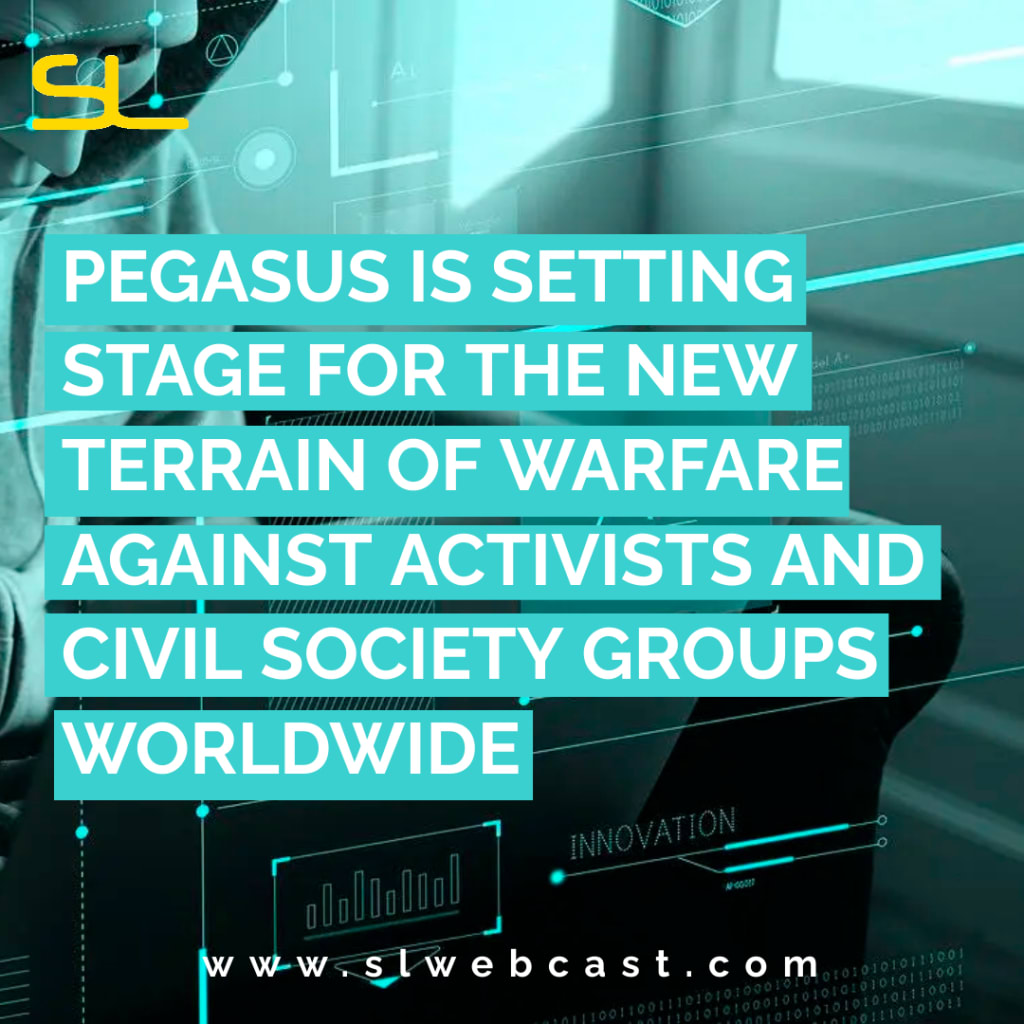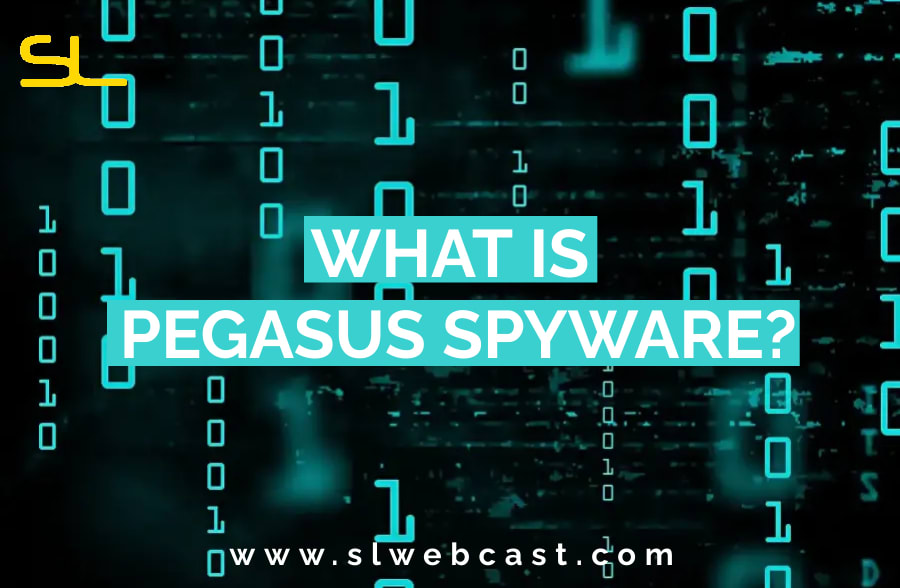What is Pegasus according to Wikipedia?
Pegasus is a spyware developed by the Israeli cyber-arms company NSO Group that can be covertly installed on mobile phones running most versions of iOS and Android. Pegasus can exploit iOS versions up to 14.6, through a zero-click exploit. The developers are the NSO Group and the operating systems to be mentioned specifically are iOS and Android.

Pegasus can do things on your phone that you couldn’t imagine doing. it can activate any function on your phone. It completely mirrors it. Amnesty International has reported a massive leak of 50,000 phone numbers. At the centre of this probe is the Pegasus spyware. It can access one’s phone camera and take pictures. It accesses your messages and your history and even records what you speak.
What is Pegasus?
It is a software created by an Israeli company called NSO Group designed to track terrorists.
Investigators:
Eyal Weizman – Director of Forensic Architecture- Professor at Goldsmiths.
Shourideh C. Molavi – Lead Israel-Palestine Reaseacher- Forensic Architecture.
People think of architecture as a simple kind of design of objects and spaces. But architecture is a very useful tool in actually mapping human rights violations that are caught on camera. We use spatial and media methodologies and technologies to investigate state and corporate violence. We investigate police forces. We investigate the military. We sometimes investigate secret services too.
Architects and artists, scholars, researchers, designers and developers are working together on a single investigation. We worked very often on the Israeli colonial violence in Palestine. Until now, that has many involved things like checkpoints, roadblocks, and military and police violence against Palestinians. Today, contemporary colonialism is also digital. You need to control people. And this is where the NSO Group comes in.
The NSO Group is an Israeli cyber-surveillance company. It has emerged in the context of a whole ecosystem that emerged out of Israeli state surveillance of Palestinians. The problem with Pegasus is that we don’t know a lot of information. what we know is that the hack will either come in the form of a one-click hack, which means that you get a message on your phone, you click on that message, and then your phone is hacked. Or it comes in the form of a zero-click. And this is where the missed call on your phone is able to hack your phone.
A later version of Pegasus just sends you a message, and the message carries the malware. This is called the WhatsApp hack. The NSO found a vulnerability within WhatsApp l and use soft wares too, actually, as a doorway into people’s phones. (A buffer overflow vulnerability in the WhatsApp VOIP stack allowed remote code execution via a specially crafted series of RTCP packets sent to a target phone number).

Pegasus is setting the stage for the new terrain of warfare against activists and civil society groups worldwide. Pegasus was on our Rader for three or years. We first heard about Pegasus when we are invited to investigate the 2014 disappearance of the students of Ayotzinapa. They had entered the town of Iguala and disappeared there.
We collected an enormous amount of information about that act of disappearance: videos, photographs, phone calls, and CCTV camera footage. There’s evidence according to our investigation, that there was state collusion and state involvement in that disappearance. That was an extremely controversial case in Mexico, exposing a huge level of state complicity. When reporters like Carmen Asristagui begin to report on it, or lawyers like Centro Prodh try to hold the state accountable in a petition, they become the targets of the state. And it’s exactly these people who Pegasus targeted. We understood that the state is very interested in our investigation and that it felt rested by what we were discovering. we knew personally many of the pipes that we were on that list, and we understood that we need to act. Our friends and our collaborators were targeted by Pegasus, so naturally, we started to use our own skill sets. And what we could do was actually use this sort of open-source ethos of Forensic Architecture.
So the open-source investigation is looking at everything that’s in the public domain- everything that is posted, everything that is mentioned that is accessible to us publicly. Each story and each target of NSO were reported in isolation. We started to look at every report and article, and account of hacking that we could find. So by collecting information from India and Rwanda, from Palestine and from Mexico, putting them together. In a platform, a 3D interactive space that allows you to see physical violence, digital violence, corporate transactions, exposures of hacks, and contextual events. Our ethos of open-source investigation allows gaining another insight.
NSO has gone on a PR campaign to talk about why Pegasus is significant, why it’s important for governments to have access to Pegasus, and a large part of the discussion is anti-terror. Now, what we found in this process is that the people that were most interesting in those repressive regimes were actually investigators. These are journalists, activists, opposition figures, religious figures, dissenters, people living in exile, and community organizers. Far from what anyone would imagine a so-called terrorist to be. Knowing that you’re targeted extract a huge psychological toll on you. Perhaps do not want to speak to people because you don’t want to compromise them, so you stop communicating. Pegasus cut the network of practice that confronts state crimes.

Researchers spent the past year and a half talking to dozen targets of Pegasus. So there are people who had experiences with arrests and imprisonment. And yet, what they were discrimination their experience of hacking, some were close to tears. They were talking about nightmares, psychological distress, and emotional distress. Pegasus projects done by Researchers are really a way to push back at this, this attempts by states to cut those networks. Researchers think that people connect to this story intuitively because everyone now has a Smartphone. And when your smartphone becomes a surveillance device, people are terrified, and they’re justifiably terrified. It’s terrifying some of the strongest people in the world.
Pegasus is so advanced that it’s very difficult to capture all of the instances of hacking. Now we collected this information knowing that it’s only a fraction of what the actual hacks are. With this limited data set, we’re still able to determine patterns and relations of how digital violence works. And in determining patterns and relations, you’re also able to tell a story. That, of course, the terrain of warfare in Mexico is very different from the terrain of warfare in Saudi Arabia. But when you place them alongside each other, you realize that physical and digital operations are in very similar ways in both of these spaces. When we launched that project, we had people from all around the world speak about their experiences, Mexicans with Rwandans, and Palestinians with Emiratis. People from all over the world actually joined by being targeted by this malware. And happily, they mean, if there’s one thing that they walking away from this project is that it is a failed project on behalf of the state. People are not silenced. If anything, they are becoming more empowered, more organized, and angrier. Standing up and saying, “We continue our work, we continue resisting, we will call our states to account, and we’re not afraid”. We are creating networks to push back against silencing and cutting the software as Pegasus does.
In September 2021, Apple released an emergency security update to close a vulnerability exploited by Pegasus. In statements issued through its lawyers, NSO denied “false claims” made about the activities of its clients, but said it would “continue to investigate all credible claims of misuse and take appropriate action”. It said that a purported leaded list of targets referred to in this film couldn’t be most of the numbers “targeted by the government using Pegasus”, stating that ” The fact that a number appears on that list is in no way indicative of whether the number was selected for surveillance using Pegasus”. The company seeks only military, law enforcement and intelligence agencies in 4p unnamed countries, and says it rigorously vets its customers’ human rights records before allowing them to use its spy tools.
In summary, Israeli cyber-surveillance company NSO Group’s Pegasus malware has reportedly been used in at least 45 countries worldwide to infect the phones of activists, journalists, and human rights defenders. This terrifying software can infiltrate your smartphone, collect your data and even listen to you without your knowledge. A huge leak in July 2021, revealed 50,000 phone numbers that had been targeted; including president of France Emmanual Macron, and friends of the family of Saudi journalist Jamal Khashoggi in the lead up to his murder in 2018. Eyal Weizman and Shourideh Molavi from Forensic Architecture used the open-source investigation to gather reports of digital Pegasus infections to reveal how they relate to acts of violence in the real world.


